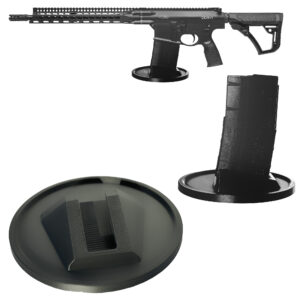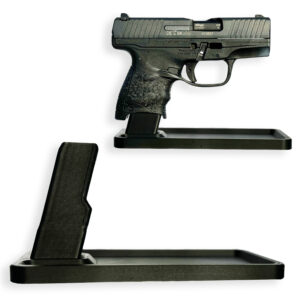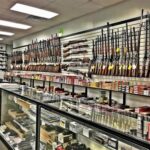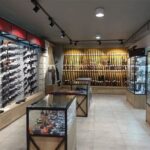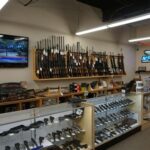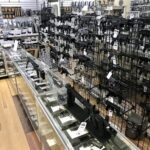Introduction To The National Guns Act (Nfa)
The National Guns Act (NFA) is a federal law enacted in 1934 that regulates the possession, transfer, and manufacturing of certain firearms and accessories. The NFA was introduced as a response to the increasing use of firearms during organized crime activities, such as the infamous St. Valentine’s Day Massacre. Its primary objective was to curb the availability of weapons that were considered particularly dangerous or inappropriate for civilian use.
The NFA imposes strict regulations on various firearms, including machine guns, short-barreled rifles (SBRs), short-barreled shotguns (SBSs), suppressors (silencers), and destructive devices like grenades or bombs. To own or transfer these restricted items, individuals must undergo an extensive application process which includes paying a tax stamp fee and obtaining approval from the Bureau of Alcohol, Tobacco, Guns and Explosives (ATF).
Understanding The Purpose Of The Nfa
The National Guns Act (NFA) was enacted in 1934 with the objective of regulating certain firearms and accessories that were deemed to pose a significant threat to public safety. The primary aim of the NFA was to control and monitor the possession, transfer, and manufacture of specific firearms, including machine guns, short-barreled rifles or shotguns, suppressors, and destructive devices such as grenades or bombs.
The NFA requires individuals who wish to own such regulated firearms to undergo a rigorous application process that includes background checks, fingerprinting, and obtaining a special tax stamp. These measures were put in place to ensure that only responsible individuals have access to potentially dangerous weapons. When it comes to AR-15 rifles, they are not specifically regulated by the NFA unless they possess certain characteristics that classify them as short-barreled rifles (SBRs) or include a suppressor.
Key Provisions Of The National Guns Act
The National Guns Act (NFA) is a federal law enacted in 1934 that imposes certain restrictions on the ownership, possession, transfer, and manufacture of specific firearms and accessories. The key provisions of the NFA aim to regulate firearms that are considered particularly dangerous or have a high potential for criminal misuse. One significant provision of the NFA is the requirement for individuals to register certain firearms with the Bureau of Alcohol, Tobacco, Guns and Explosives (ATF).
This includes short-barreled rifles and shotguns, machine guns, suppressors (also known as silencers), destructive devices such as grenades or bombs, and any other firearm deemed by the ATF as fitting within these categories. Additionally, the NFA imposes a tax on transferring these regulated firearms between individuals or entities. This tax is commonly referred to as a “transfer tax” and must be paid before any legal transfer can take place.
How Ar-15S Are Affected By The Nfa
The National Guns Act (NFA) is a federal law enacted in 1934 that regulates the ownership and transfer of certain firearms, including AR-15s. Under the NFA, AR-15 rifles can be subject to additional restrictions and requirements depending on specific features and modifications. One key aspect of the NFA relating to AR-15s is the regulation of short-barreled rifles (SBRs). An SBR is defined as a rifle with a barrel length less than 16 inches or an overall length less than 26 inches.
To possess an SBR legally, individuals must comply with strict regulations, including submitting an application to the Bureau of Alcohol, Tobacco, Guns and Explosives (ATF), paying a $200 tax stamp fee, undergoing extensive background checks, and obtaining ATF approval prior to transferring or manufacturing such firearms.
Requirements For Owning An Ar-15 Under The Nfa
To legally own an AR-15 rifle under the National Guns Act (NFA) in the United States, individuals must comply with specific requirements. Firstly, potential owners must be at least 21 years old to purchase a complete AR-15 rifle or its lower receiver, which is considered the firearm’s serialized part. Additionally, they must undergo a thorough background check conducted by the Bureau of Alcohol, Tobacco, Guns and Explosives (ATF).
This background check aims to ensure that applicants do not have any disqualifying factors such as felony convictions or restraining orders. Moreover, under the NFA regulations, owning an AR-15 as a Title II firearm requires filing a tax stamp application with the ATF and paying a $200 fee. This process involves submitting fingerprints, photographs, and obtaining approval from local law enforcement officials.
Challenges And Controversies Surrounding Ar-15S And The Nfa
The AR-15, a popular semi-automatic rifle, has been at the center of numerous debates surrounding gun control and the National Guns Act (NFA). Critics argue that the NFA’s regulations are too restrictive, hindering law-abiding citizens’ access to firearms. The NFA requires additional paperwork, background checks, and a $200 tax stamp for individuals wishing to own certain firearms classified as “Title II” weapons.
This process can be time-consuming and costly. Moreover, opponents assert that AR-15s are often unfairly targeted by those advocating for stricter gun laws due to their military-style appearance. They argue that despite its intimidating appearance, an AR-15 functions similarly to many other semi-automatic rifles available on the market. Supporters of the NFA argue that these regulations are necessary to prevent criminals from obtaining powerful weapons easily.
Conclusion: Evaluating The Impact Of The Nfa On Ar-15 Ownership
In conclusion, the National Guns Act (NFA) has had a significant impact on AR-15 ownership in the United States. Since its enactment in 1934, the NFA has regulated certain firearms, including short-barreled rifles and shotguns, suppressors, and fully automatic firearms. However, it is important to note that AR-15s are not specifically listed as restricted under the NFA. While the NFA does not directly regulate AR-15s as a whole, some modifications or accessories commonly associated with these rifles may fall under its purview.
For instance, if an individual wants to attach a suppressor or convert their AR-15 into a fully automatic firearm, they would need to comply with the regulations and obtain the necessary approvals from the Bureau of Alcohol, Tobacco, Guns and Explosives (ATF).
Related



